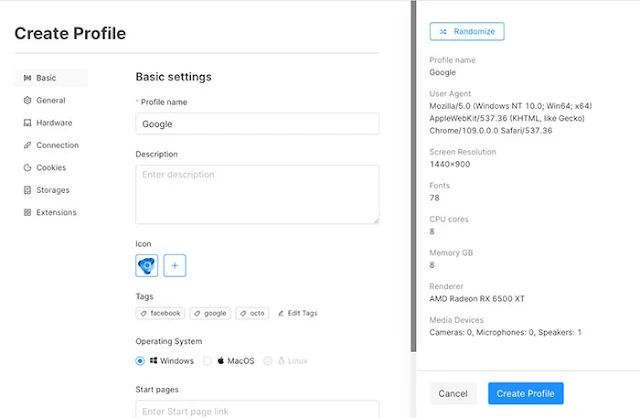In the modern hi-tech world, businesses across the globe are becoming increasingly vulnerable to fraud. Professional investigators report that businesses lose an estimated 5% of their annual revenues due to fraud. This significant amount of money can erode a company’s profitability and put them at risk.
Fortunately, understanding the various types of fraud can help business owners identify potential risks and take preventive steps to reduce the chances of falling victim to an incident.
Most Common Types of Business Fraud:
 |
| Most Common Types of Business Fraud: eAskme |
This article explores the most common types of business fraud, their warning signs, and the steps businesses can take to protect themselves.
Accounting Fraud:
Accounting fraud is one of the most common types of business fraud and involves manipulating financial records to conceal criminal activity or misstate the company’s financial performance.
Common schemes include overstating revenues, understating expenses, concealing losses, or falsifying asset values.
Business owners should be wary of discrepancies between the actual data and financial statements.
They should also establish strong internal control procedures, such as segregating duties and implementing an independent audit process.
Identity Theft:
Identity theft is when an individual uses private or non-public information, such as bank account or credit card information, social security number, etc., without permission to commit fraudulent activities.
It can be used to commit financial fraud or gain access to company accounts.
Businesses should take precautions by shredding documents containing personal information, encrypting data transmissions, and regularly auditing their security systems.
Identity theft can be difficult to detect, but business owners should look for unexplained account activity and unusual bills or charges.
They should also consider using identity theft protection services for their customers.
Investment Fraud:
Investment fraud involves persuading people to invest in a false business opportunity or fraudulent securities.
Businesses can be targeted by unscrupulous individuals who promise unrealistic returns on investments or are misled into investing with firms that are not registered with the proper authorities.
Business owners should thoroughly research any investment offers and be wary of promises that seem too good to be true.
They should also consider investing with reputable firms such as banks or broker-dealers subject to regulatory oversight.
Cyber Fraud:
Cyber fraud has become increasingly common in recent years, with criminals using sophisticated tactics to access sensitive information or commit financial crimes.
Some of the most common forms of cyber fraud include phishing, malware, and data breaches. These types of fraud can be difficult to detect and prevent.
Businesses should take cybersecurity seriously and invest in up-to-date technology, encryption solutions, and user authentication measures designed to protect their networks from malicious actors.
They should also create procedures for detecting and responding to cyber breaches quickly and effectively.
Bribery and Corruption:
Bribery and corruption involve offering or receiving money or other types of compensation in exchange for influence or advantage.
Businesses can face legal action if they are found to be engaging in bribery or illegal payments.
Business owners should establish policies and procedures that promote ethical behavior and discourage corrupt practices.
They should also review their business processes regularly to ensure compliance with applicable laws.
Money Laundering:
Money laundering is a criminal activity that involves concealing the origin or destination of illegally obtained money.
Businesses can be unwittingly caught up in this type of fraud when their customers transfer large sums of money through banking channels without declaring their source.
A sudden influx of high-dollar transactions, large deposits with no obvious source, and requests to use a company’s accounts for foreign currency transfers are all warning signs of money laundering.
Business owners can protect themselves by doing due diligence on customers, establishing anti-money laundering policies, and implementing strict transaction monitoring procedures.
Tax Fraud:
Tax fraud occurs when a company deliberately misrepresents its income or expenses to reduce the taxes it has to pay.
It can range from claiming false deductions to concealing income.
There're various strategies for avoiding tax fraud, such as keeping accurate and detailed records, only claiming legitimate deductions, and ensuring employees are aware of the company’s tax obligations.
Business owners should also consider consulting a qualified accountant or lawyer to ensure they are complying with all relevant laws.
Payroll Fraud:
One of the most common types of business fraud is payroll fraud, which involves manipulating payroll records or embezzling funds from the company.
There are several ways payroll fraud can be perpetrated, including:
- Creating false time sheets: Employees can submit false time sheets with inflated hours or amounts to receive unearned wages. This fraud is often hard to detect, as it relies on trust between employees and employers.
- Altering paychecks: Accountants and payroll staff may use their access to company funds to increase their payouts or embezzle money from the business.
- Misappropriating employee benefits: Some employers may also misuse funds for employee benefits, such as pensions or health insurance. This type of fraud can have serious legal consequences.
- Issuing unauthorized bonuses: Apart from misappropriating employee benefits, employers may issue unauthorized bonuses to themselves or other employees. This can have serious financial implications for the business.
To protect against payroll fraud, business owners should ensure that all employees are properly trained on the company’s financial and accounting processes.
They should also implement internal monitoring protocols to detect potential discrepancies or irregularities.
Asset Misappropriation:
Asset misappropriation is another form of business fraud that involves the unauthorized use or theft of company assets.
This crime may include stealing cash, property, or other valuable items. It can also involve embezzlement and fraudulent expense reports.
Businesses should have policies to deter asset misappropriation, such as conducting regular audits of their assets and monitoring employee activities to ensure that company property is not misused.
Additionally, employees should be trained on properly using company assets, and any violations should be reported immediately.
Employees caught engaging in asset misappropriation can face serious penalties, including fines, restitution orders, and even jail time.
Businesses that have suffered a loss due to asset misappropriation may also be able to recoup their losses through civil litigation.
Conclusion:
By understanding the most common types of business fraud, business owners can take steps to protect their enterprises and safeguard against financial loss.
Focus on implementing strong internal controls, training employees on proper financial practices, and maintaining up-to-date records.
With careful monitoring and vigilance, you can mitigate their risk of becoming a fraud victim.
Share it with your friends and family.
Don't forget to join the eAskme newsletter to stay tuned with us.
Other handpicked guides for you;



























